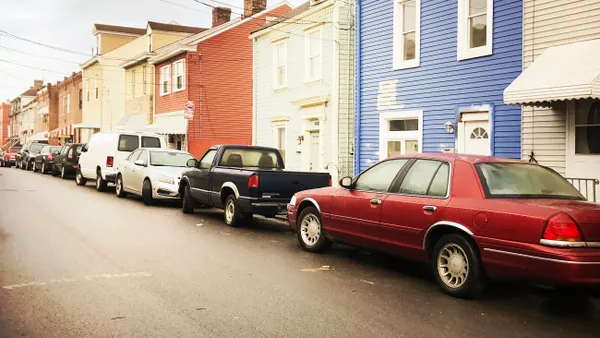Dive Brief:
- The Federal Communications Commission voted Thursday to relax rules on the national approval process for deploying small cells, the hardware required to support 5G networks. VentureBeat and others reported the measure passed on a 3-2 party-line vote.
- The FCC’s ruling means the majority of small cells installed are exempted from review under the National Historic Preservation Act (NHPA) and National Environmental Policy Act (NEPA). It also removes the requirement that applicants file Environmental Assessments (EAs) if a proposed location for 5G infrastructure is in a floodplain, as long as certain conditions are met.
- Proponents say this latest decision from the FCC could speed the deployment of and investment in 5G and its supporting infrastructure, while opponents say it undermines transparency and environmental protections. The rule does not need Congressional approval.
Dive Insight:
This ruling, another controversial one from the FCC, has split opinion. In a statement, wireless communications association CTIA said the ruling will “spur 5G investment and development” and “help America win the global 5G race.”
“The reforms will make a big difference in how quickly these more powerful networks can be installed for consumers and communities across the nation,” Meredith Attwell Baker, CTIA President and CEO, said in a statement.
Others are not so sure. Rep. Debbie Dingell, D-MI, sent a letter to FCC commissioner Brendan Carr urging him to reconsider to protect the environmental review process. "Without much thought, your proposed order weakens NEPA’s transparency framework in the name of efficiency, yet does not include a single enforceable commitment to ensure that broadband providers will actually build more infrastructure,” Dingell wrote. “At its root, NEPA requires the government to consider the environmental impact of its actions and encourage public participation in its decision-making process.”
The FCC appears to have made this decision with an eye on speeding up approvals and in bringing down costs for installing the infrastructure. CNET reported that Carr said federal reviews cost providers $36 million in 2017, and could cost as much as $241 million this year. And, CNET noted, he said FCC records show less than 1% of cases reviewed resulted in any changes. "The disproportionate fees are the product of a broken and outdated system," Carr said. Although some cities have argued the regulatory review process ensures deployment is done in an equitable way, especially to rural and low-income areas.
Elected officials and those in the technology industry have spoken frequently of the need for the United States to stay ahead of the rest of the world in 5G deployment, and so far private companies are leading the way after talks of a nationalized service, with AT&T, Verizon, Sprint and T-Mobile all at various stages of rolling the service out in cities nationwide.
With Canada moving quickly to advance 5G innovations, the race is on to provide the service, possibly as part of the country’s ongoing discussions about infrastructure upgrades. “People think about infrastructure, they think immediately about brick and mortar,” Rep. Yvette Clark, D-NY, said at a Thursday event on the future of smart cities and 5G. “I think that’s a significant part of what needs to happen, but broadband is just as important, and the deployment of 5G is just as important.”












